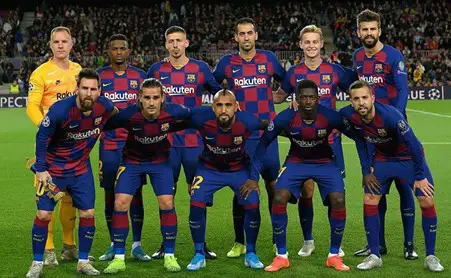I watched Barcelona erase a 4-0 first-leg deficit against PSG in 2017 and couldn’t understand what I was seeing. Despite leading 3-1 on the night and still trailing on aggregate at 87 minutes, they scored at 88′, 90+1′, and 90+5′ to win 6-1. That match taught me something basic about elite sport that statistics alone can’t capture.
Some teams possess a mental edge that turns impossible situations into historic victories. Here’s what separates teams that crumble under pressure from those that mount legendary comebacks.
What Makes Comebacks Possible
The mental framework starts long before the actual comeback moment arrives. Teams that regularly fight back from deficits share specific patterns that show up during crucial matches.
Using a betting broker helps serious analysts track how teams perform when trailing at different game states. Event data like passes allowed per defensive action and expected goals when behind reveal patterns that separate true comeback specialists from teams that occasionally get lucky. Liverpool under Klopp showed steady second-half surges, hitting a peak with the 2019 4-0 versus Barcelona in the semi-final.
Research from sports psychologists shows comeback-prone teams display core traits. They keep their shape under pressure rather than panicking into chaotic attacking. When trailing, strong sides tighten up and often increase pressing intensity. Matches commonly tilt toward late goals and impact from substitutes after 75 minutes.
Related: The Math Behind The Match: How Smart Fans Use Numbers To Predict Performance
The Psychological Edge
Teams that refuse to lose possess what sports psychologists call “collective efficacy,” a shared belief in their ability to change outcomes regardless of circumstances. This isn’t empty motivation talk. It’s a real state that affects decisions under pressure.
This edge comes from collective efficacy, a team’s shared belief that they can influence outcomes, which sport psychology research consistently links to better performance. What creates this state isn’t mysterious. It comes from repeated exposure to pressure in training and previous successful comebacks that become part of the team’s identity.
Manchester City’s late winners under Guardiola aren’t random. They reflect conditioning, squad depth, and repeatable habits that sustain intensity when others fade, especially in phases when a large share of goals arrive league-wide after 75 minutes.
Tactical Patterns Behind Great Comebacks
The mental aspect means nothing without tactical changes that create genuine scoring chances. Managers who engineer comebacks make specific moves that exploit tired opponents:
- Shifting to unbalanced formations that overload one flank while the opponent expects balance
- Bringing on fresh attackers against defenders who’ve been defending deep for 70 minutes
- Moving to direct play that bypasses midfield when patient buildup hasn’t worked
- Pushing fullbacks higher to create overloads wide while accepting counter-attack risk
Premier League comeback statistics show successful turnarounds typically involve earlier and bolder changes around the hour mark, using fresh legs when a large share of goals arrive. Research on substitution impact confirms roughly 20% of Premier League goals come after the 75th minute, with substitutes playing crucial roles.
Making This Knowledge Practical
Understanding comeback psychology helps you judge matches beyond the scoreline. For instance, a team trailing 1-0 but creating steady chances and keeping shape isn’t in real trouble yet.
The key is watching how players behave when behind; do they keep offering runs or disappear into safe positions? Does the keeper rush every pass or stay composed under pressure?
These signals reveal mindset, and mindset determines outcomes. The best comeback specialists treat deficits as tactical puzzles to solve rather than psychological weight to carry. That difference is what turns two-goal deficits into historic victories








